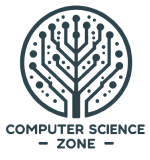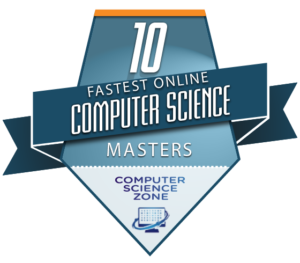 Computer Science and IT workers continue to be among the most important, in-demand professionals in the economy. According to the U.S. Bureau of Labor Statistics, the sector’s employment is expected to grow 12% through 2024, which translates to about a half-million jobs, in large part because of the proliferation of cloud computing, big data, and the ever-expanding “Internet of Things” (i.e., the Amazon Echo, smart house appliances and security, etc.). While many professionals are fine with a bachelor’s degree (or forego a formal degree altogether), certified academic credentials still matter, especially for upper-level and management roles that require specialized skillsets. No wonder, then, that more and more CS workers are opting to pursue master’s tracks; and no wonder, too, that many are opting for online master’s to accelerate course work and allow for flexibility and customization. The fact is, in today’s world, a traditional on-campus tech degree almost seems counterproductive.
Computer Science and IT workers continue to be among the most important, in-demand professionals in the economy. According to the U.S. Bureau of Labor Statistics, the sector’s employment is expected to grow 12% through 2024, which translates to about a half-million jobs, in large part because of the proliferation of cloud computing, big data, and the ever-expanding “Internet of Things” (i.e., the Amazon Echo, smart house appliances and security, etc.). While many professionals are fine with a bachelor’s degree (or forego a formal degree altogether), certified academic credentials still matter, especially for upper-level and management roles that require specialized skillsets. No wonder, then, that more and more CS workers are opting to pursue master’s tracks; and no wonder, too, that many are opting for online master’s to accelerate course work and allow for flexibility and customization. The fact is, in today’s world, a traditional on-campus tech degree almost seems counterproductive.
Below, we’ve compiled the top 10 fastest master’s in Computer Science, computed by the lowest required number of credits as well as the fastest time-until degree. Read on to find the right track for you!
1) University of Illinois–Urbana Champaign
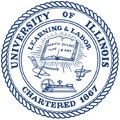
Founded in 1867, The University of Illinois is the state’s second oldest university, with 150 undergraduate and 100 graduate and professional programs. As one of the top public universities in the country and a traditional “public ivy,” Illinois has been ranked highly by Times Higher Education, Academic Ranking of World Universities, QS World University Rankings, and US News, which also highlights the university’s veteran services. Over 40% of classes have less than 20 students, and the university’s 18:1 student-to-faculty ratio supports intimate, one-on-one instruction alongside collaborative and experiential learning opportunities.
Illinois offers a professional master’s in Computer Science that totals 32 credit but requires just 24 to be completed through the program (meaning students with previous credits can transfer into the MSC). On a fully loaded schedule, students can complete the track in as little as one year. Core requirements are structured around eight areas, of which students choose four: Architecture, Compilers, Parallel Computing; Artificial Intelligence; Database, Information Systems, Bioinformatics; Formal Methods, Programming Languages, Software Engineering; Graphics/HCI; Systems and Networking; Scientific Computing; and Theoretical Computer Science. Courses are designed for maximum flexibility to accommodate working professionals and adult learners. and full- and part-time tracks are available. For those interested, Illinois also offers an MSC with a Data Science Track.
2) Southern New Hampshire University

Founded in 1932 as the New Hampshire School of Accounting and Secretarial Science, SNHU has become one of the worldwide leaders in distance learning, ranked #1 in the country by US News for innovation education. All 200+ programs are career-focused and designed for working professionals and adult learners, and instructors are experts in their respective fields. Most impressive, SNHU maintains a 15:1 student-to-faculty ratio, despite its online enrollment of 70,000, giving students the resources of large research university and the intimacy of a small liberal arts school. Over half of classes have fewer than 20 students and none have 50. Student services include personalized academic advising, a writing center, career services, 24/7 tech support, and library services.
Southern New Hampshire offers a 15-month MS in Information Technology with a concentration in Software Application Development. Core requirements include classes like Operating Systems, IT Project and Team Management, Telecommunications and Networking, Software Design and Modeling, Database Design, and Distributed Application Development, among others. Courses deliver in accelerated 10-week blocks, designed to accommodate working professionals with busy schedules, and course material is available 24/7. Upon completion of the degree, graduates will be prepared to analyze existing software programs and systems; develop and implement new applications; and monitor and resolve ongoing systems issues. While applicants should submit a professional resume, no GRE or GMAT scores are necessary. Admissions are rolling.
3) Syracuse University
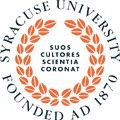
Syracuse University, founded in 1870, is a private school with a total enrollment of about 22,000. In addition to a high US News national ranking, Syracuse has been recognized by The Princeton Review, The Chronicle of Higher Education, Forbes, Washington Monthly, and more for its overall value and veteran services. All programs follow rigorous curriculum, but experiential learning, interdisciplinary studies, and entrepreneurial initiatives are key features of Syracuse, as well. Almost 90% of faculty hold terminal degrees, and many are considered leading experts in their discipline. With a 16:1 student-to-faculty ratio, the university combines a collaborative, vibrant learning community with a tailored instructional approach. 60% of classes have fewer than 20 students and less than 10% have 50.
Syracuse’s MS in Computer Science consists of 30 credits, which can be completed in as little as 15 months. Core requirements are Structured Programming and Formal Methods, Computer Architecture, Principles of Operating Systems, and Design and Analysis of Algorithms; from there, students can customize the track through a variety of elective options in areas like Object Oriented Programming C++, Software Engineering, and Computer Security. All students must also attend one on-campus immersion experience to meet peers and professors, hear guest speakers and industry experts, and participate in collaborative workshops. Courses are designed for maximum flexibility and include live classes and interactive coursework. Students have access to career and career management services, advising, tech support, and more.
4) Boston University

Founded in 1839, Boston University has a total enrollment of 32,200, making it one of the largest private schools in the country, with students from all 50 states and 133 countries. BU is also one the top-ranked universities in the U.S. according to US News, Forbes, Newsweek, Times Higher Education, Washington Monthly, and other publications. In particular, US News gives it high marks for overall value: 36% of full-time students receive some form of financial aid, and the average percent of need met is 88%. The 12:1 student-to-faculty ratio is excellent for a school of its size, balancing a vibrant educational community with small, intimate classes. Nearly 60% of classes have fewer than 20 students and just 14% have 50.
Boston offers a 40-credit online MS in Computer Information Systems that students can complete in as little as 18 months. Core requirements include Business Data Communication and Networks, Database Design and Implementation for Business, Information Systems Analysis and Design, IT Strategy and Management, and IS with Java or IS with Python. Next, students choose a set of electives to customize the track or complete one of seven available concentrations in Computer Networks, Data Analytics, Database Management & Business Intelligence, Health Informatics, IT Project Management, Security, and Web Application Development. A top 4 program according to US News, courses are designed for maximum flexibility and taught by Boston’s top-tier faculty. Further, the MSCIS holds certification from the Committee on National Security Systems and has been recognized by the National Security Agency and the Department of Homeland Security as a Center of Academic Excellence in Information Assurance Education and Research. For those interested, Boston also offers an online MS in Software Development and a dozen related graduate certificates.
5) University of Southern California
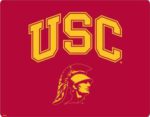
Founded in 1880, USC is a private research institution ranked among the best universities in the country by The Princeton Review, Forbes, USA Today, Academic Ranking of World Universities, and U.S. News, which also highlights the university’s overall value, veteran services, and innovation in education. Considering its enrollment of 40,000, the 9:1 student-to-faculty ratio is excellent, combining the intimate, small classes of a liberal arts school with the resources of a major research institute. Over 60% of classes have fewer than 20 students and just 12% have 50. For those interested in financial aid opportunities, USC’s undergraduate rate shows a solid record: 40% of full-time students’ needs were fully met.
The USC MS in Computer Science totals 28 credits and can be completed in as little as 18 months. Core requirements include Analysis of Algorithms and two of the following: Foundations of Artificial Intelligence, Web Technologies, and Database Systems. From there, students tailor the degree to areas of professional interest through a variety of electives, an optional thesis (requiring an additional 4 credits of coursework), or specialization tracks in Computer Security, Data Science, Scientists and Engineers, and Software Engineering. Courses are highly flexible and deliver in a blended format, featuring live virtual classrooms, on-demand course material, and an instructional support center to coordinate homework and exams. Applicants should have earned at least a 3.0 undergraduate GPA.
6) New Jersey Institute of Technology

Founded in 1881, New Jersey Institute of Technology has a total enrollment of about 11,300, 300 of which are graduate students. As a member of the Association of Public and Land-grant Universities, a Sea Grant College, and the Association of Collegiate Schools of Architecture, NJIT ranks highly on lists by the Princeton Review, US News, Washington Monthly, and Business Insider, in which the university was listed among America’s most underrated colleges. US News has highlighted its veteran services and appeal to high school counselors. The 17:1 student-to-faculty ratio balances a collaborative learning atmosphere with individualized, tailored instruction that places the student first. Over a third of classes have fewer than 20 students and just 6% have 50.
Forbes has ranked NJIT’s MS in Computer Science 4th on its “Best Master’s Degree for Jobs.” Totaling 30 credits, the program can be completed in as little as 19 months. Core requirements include Data Structures and Algorithms, Operating System Design, Data Management System Design, and Internet and Higher-Layer Protocols. From there, students can continue a generalist track with 18 elective credits or pursue a specialization in Databases & Data Mining or Networking. Further, graduate certificates are also available in Data Mining and Software Engineering, Analysis, and Design. Courses deliver asynchronously to accommodate working professionals and adult learners, and the program’s dynamic e-learning platform features a variety of tools. The program is certified by the Committee on National Security Systems, and the National Security Agency (NSA) and Department of Homeland Security (DHS) have recognized the university as a National Center of Academic Excellence in Information Assurance Education.
7) Franklin University
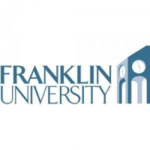
Franklin University, founded in 1902, has five campuses in Ohio and Indiana and specializes in adult education; the average student is in their mid-30s, and 9/10 transfer into a program using previously earned credits. Taking this into consideration, Franklin designs all programs for maximum flexibility and many include accelerated tracks. All students have access to career services, tech support, tutoring, student workshops, personalized academic advising, enrollment assistance, and more. Prospective online students are encouraged to take a free demo course, and admissions are rolling.
Franklin’s online MS in Computer Science consists of 40 credit hours, which can be completed in as little as 19 months. Core requirements include classes like Issues in Database Management, System Architecture and Engineering, Distributed Systems, Project Management of Information Systems, and more. Students then choose 4 hours of electives to customize the track according to areas of professional interest and then complete a capstone. All courses are designed and taught by experienced professionals in the field, ensuring course work is both grounded in sound theory and applicable outside of the classroom. Hands-on learning opportunities also enhance skills and provide the curriculum with a dynamic educational approach.
8) Drexel University

Founded in 1891, Drexel University is a private school with a total enrollment of around 23,000. With an emphasis hands-on experiential learning, Drexel’s unique co-op program sends students to more than 1,600 employers worldwide for six months at a time. As a sign of its wide appeal, US News ranks Drexel among the best colleges in the nation for academics, overall value, veteran services, and innovation. Nearly 60% of classes have less than 20 students and fewer than 10% have 50, creating a vibrant, collaborative atmosphere that balances peer-to-peer interaction with individualized instruction. For those interested in financial aid opportunities, Drexel’s undergraduate record is promising: 60% of full-time students receive some form of aid, and the average need met is about 70%.
Drexel offers an online MS in Computer Science that requires 45 quarter credits, which translate to 30 traditional credits. With the curriculum divided into 6 competencies — Theory, Intelligent Systems, Programming Systems, Computer Systems, Vision and Graphics, and Applications — core requirements include classes like Data Structures and Algorithms, Theory of Computation, Introduction to Artificial Intelligence, Programming Languages, Software Design, Operating Systems, and Developing User Interfaces. Electives are available in areas like Electrical Engineering and Information Science and Technology. Students then have the option to pursue a thesis or non-thesis option, the latter of which consists of two additional upper-level courses. Classes deliver in accelerated 10-week blocks, and all students tailor the curriculum to their needs with a personal graduate advisor.
9) University of Louisville
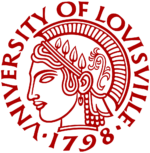
University of Louisville, founded in 1798, is a public institution with an enrollment of about 22,000, including 6,000 graduate students. In particular, US News, which ranks Louisville as a Tier 1 national university, highlights the school as a top public institution. The 16:1 student-to-faculty is a excellent considering its population, balancing the vibrant, collaborative environment of a large research university with the intimate classes of a liberal arts school. A third of classes have less than 20 students and fewer than 10% have 50. For students interested in financial aid opportunities, the undergraduate rate shows a solid record: 58% of full-time students receive some form of tuition assistance, and the average need met is above 60%.
Louisville offers a 100% online MS in Computer Science that consists of 30 credits. With the curriculum divided into Foundations, Analytic, and Software requirements, students have leeway to tailor course work to fit their unique professional needs; example classes include Computer Networks, Internet Applications, Experimental Design, Combinatorial Optimization & Modern Heuristics, and Digital Image Processing. From there, students complete either a thesis or project track. For maximum flexibility, courses are offered year-round to accommodate your schedule, and up to 6 credits can be transferred into the program, accelerating completion time. Louisville also offers online graduate certificates in Data Science and Cybersecurity.
10) Stevens Institute of Technology
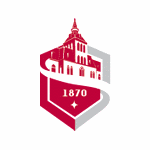
Founded in 1870, Stevens Institute of Technology has a total enrollment of 6,300, divided between undergraduate and graduate students. US News ranks SIT among the top 75 national universities, and high school counselors place it among the top 85. With a special emphasis on entrepreneurship and innovation, SIT is best known for its co-op track and STEM research. The 9:1 student-to-faculty guarantees close, one-on-one instruction opportunities and a tight-knit learning community. Nearly 40% of classes have fewer than 20 students and just 9% have 50. For those interested in financial aid, SIT boasts a top-notch undergraduate record: over 60% of full-time students receive some form of tuition assistance, and the average need met is 75%.
Stevens offers an online MS in Computer Science that requires 30 credits. The curriculum is designed for maximum customization and encourages students to build individualized course work rather than follow traditional core requirements. Among the CS classes available are Concurrent Programming, Data Mining and Knowledge Management, Mobile Systems and Applications, Interactive Computer Graphics, Artificial Intelligence, and Fundamentals of Cybersecurity, among others. From there, students can select electives with a particular focus area, including Gaming and Simulation, Mobile Systems, and Web Application Development, among a half-dozen more. The program’s faculty is another major selling point, with 5 National Science Foundation CAREER winners and consultants for Microsoft, IBM, and Google. Since 2003, the university has been designated as a NSA/DHS National Center of Academic Excellence in Information Assurance Education. In 2008, it obtained designation as a NSA/DHS National Center of Academic Excellence in Information Assurance Research.
